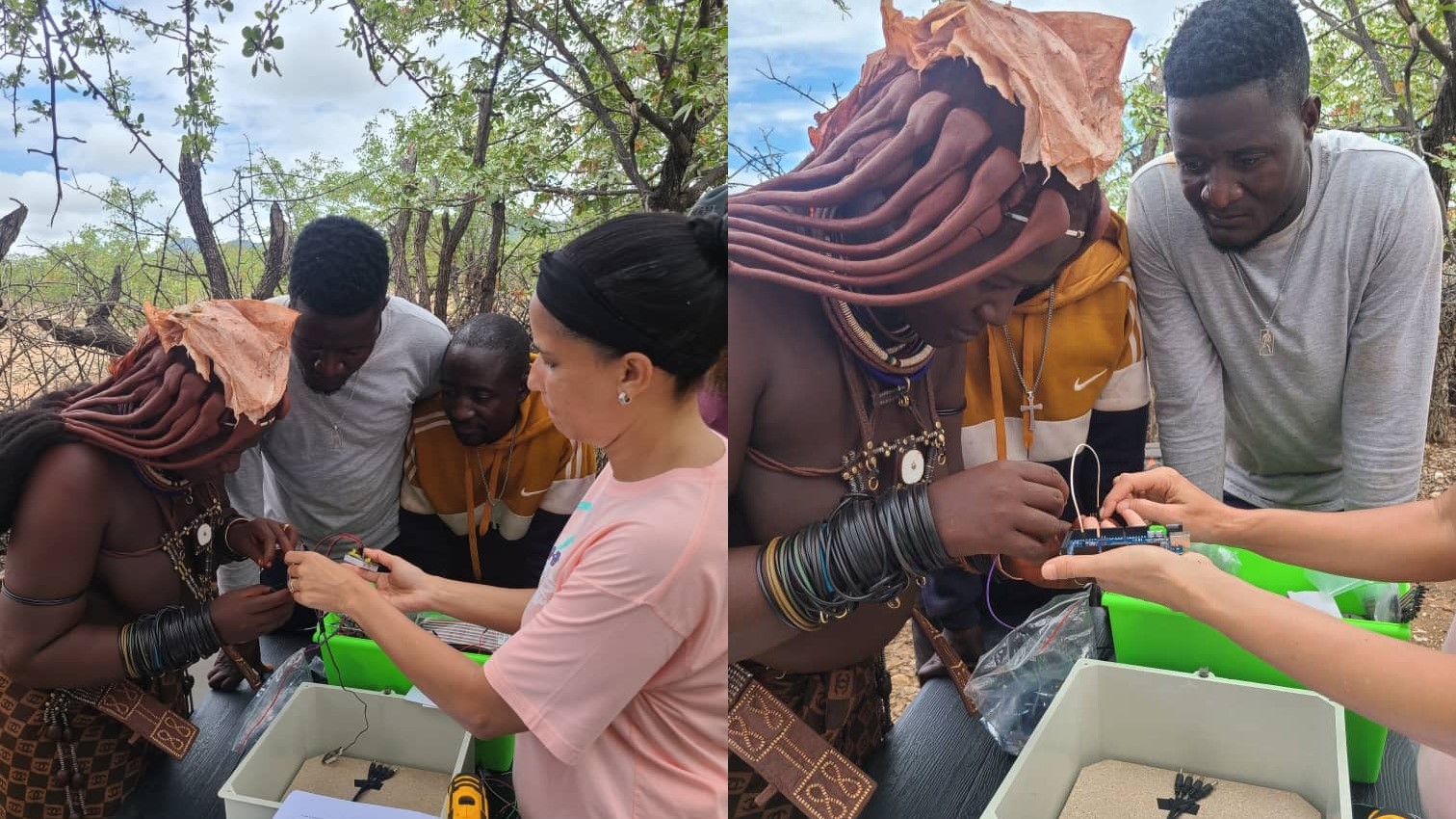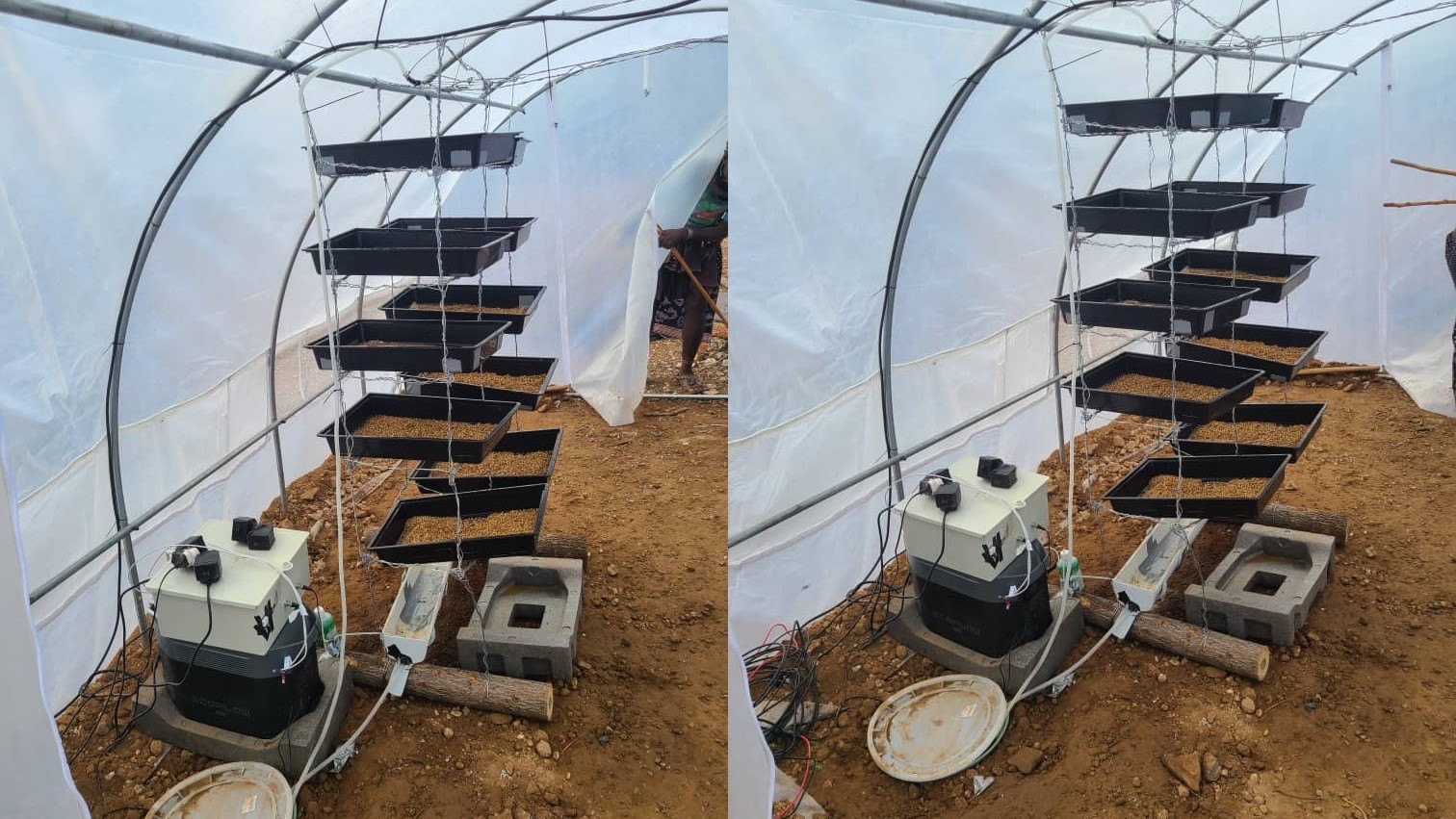Animal Feed Hydroponics Deployment in Otjisa Kunene
From February 13-16, 2025, a field trip was undertaken by a team of researchers under the UNESCO Chair in Digital Technology Design with Indigenous People Cluster , Mike Kale and from the Namibian University of Science and Technology (NUST) , Unesco Chair Holder Hilma Amwele , Moses Shuuya and South Africa’s Independent Institute of Education's Varsity College , Sarina Till, Taryn Wilson, Reece Wanvig to Otjisa to deploy an innovative AI-driven hydroponic farming system. This collaborative project aims to empower Otjisa community farmers with cutting edge technology to enhance food production while conserving precious water resources.
Hydroponic farming offers a viable alternative for water-scarce regions like South Africa and Namibia, where traditional farming methods struggle under unpredictable climate conditions This method uses significantly less water than soil-based agriculture and can operate independently of weather conditions when implemented in controlled environments. However, its adoption requires technical expertise and continuous monitoring, posing challenges for new farmers
The team designed an AI and IoT that enables hydroponic grow tents. The AI in the tent controls the temperature, humidity, and light levels, as well as the nutrient levels in the nutrient solution. The IoT implementation allows the farmers to interject and adjust the tent's humidity, temperature, and other environmental conditions should the AI make a mistake. This system uses 20 Liters of water, which makes it suitable for arid regions in Namibia. They recently adapted this system to enable farmers to grow food and hydroponic fodder to feed their goats and chickens. With this project, we hope to expose farmers to AI as a growing companion that they can utilize to reduce labor and grow more efficient crops and fodder to assist with farming during climate change.
The team made use of a 4mx3mx2m grow tunnel and installed the AI system in the tunnel. The tunnel was then furnished with 10 hydroponic fodder growing trays capable of growing up to 70kgs of hydroponic fodder every 7 days. The team trained members of the community to manage the tent as well as how to lay the seeds for fodder production in the tent


